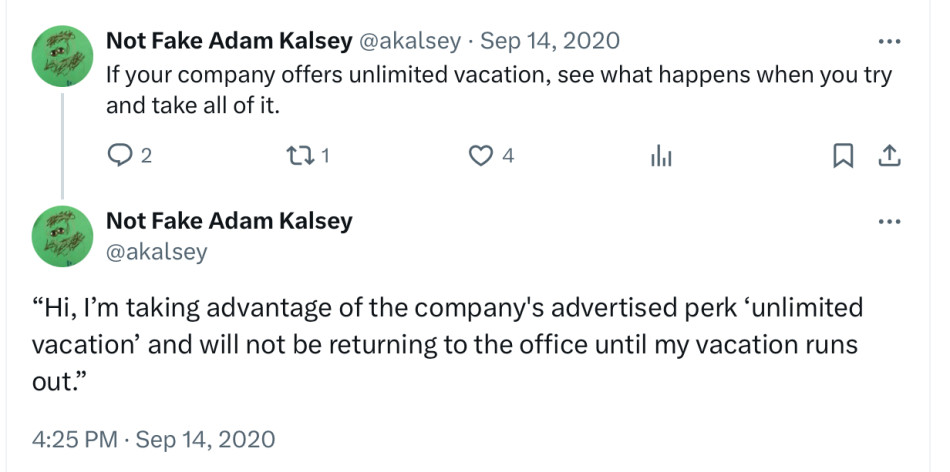Management & Leadership
Your Policies Aren’t Your Culture
13 Dec 2024

Company culture isn’t what’s written in your handbook. It’s how your people live every day. Culture is the collective behavior and attitudes, the norms and standards. Policies and formal rules can help reflect and reinforce the culture, but they are not the culture itself.
This confusion is seen yesterday’s Wall Street Journal headline, “Netflix’s Extraordinary Parental Leave Was Part of Its Culture. That’s Over.” The author implies that this signals a culture change. But the parental leave policy isn’t their culture. Netflix has a culture of “freedom and responsibility.” Netflix may have thought that the policy wasn’t driving the culture they wanted. People were using the freedom part without taking responsibility. Removing their unlimited parental leave policy doesn’t change their culture. The culture at Netflix was already built around the idea of taking the time you need and being responsible about it.
Policies can serve as a framework to help individuals understand what’s expected of them. For instance if you have a policy of unlimited time off, does it mean an employee can take vacation indefinitely?
Policies help clarify what "unlimited" really means. Without clear guidelines, an employee might wonder if they can take three weeks, three months, or even a year off. This uncertainty can lead to employees not taking enough vacation time, fearing they might be crossing an invisible line.
Your policies codify your culture, and your culture guides people in implementing the policies. In companies with unlimited vacation policies, many employees struggle to take time off because they’re unsure what the norm is. You need to set this norm so people know how to implement “unlimited vacation.” If you don’t set it, it will evolve naturally and it might not be what you wanted.
For example, a company might communicate that vacation is unlimited, and the expected norm is to take around one to two months off per year, and no more than two weeks at a time. This clarity helps employees feel more comfortable taking time off without the stress of whether they’re overstepping boundaries.
You need to continually review your policies to see that they’re building the culture you want. See how people are behaving, then set policies to steer that behavior toward the cultural norms you intended.
When your culture and policies aren’t linked, you don’t get the behavior you want. People do what the policy says. You might say you have a culture of being Customer Focused, but if your policy makes people get three approvals for doing something non-standard for a customer, do you think you’ll really have a Customer Focused culture?
The longer a bad policy is left in place, harder it will be to change the inadvertent culture it created. Netflix is experiencing backlash about their parental leave policy because they accidentally created a norm of very long leaves. Clawing that back feels like a cultural change because it is.
Culture lives in actions, not rulebooks. Policies can steer and shape behavior, but it’s the norms and values of your people that define your company. Make sure your rules create behaviors that build the culture you want.
The image at the top of this post is of a traffic jam in Manilla. In most of the city, drivers ignore the traffic lanes and a 3 lane road might have 5 cars abreast. The policies aren’t getting followed or enforced, so the culture has taken over.
